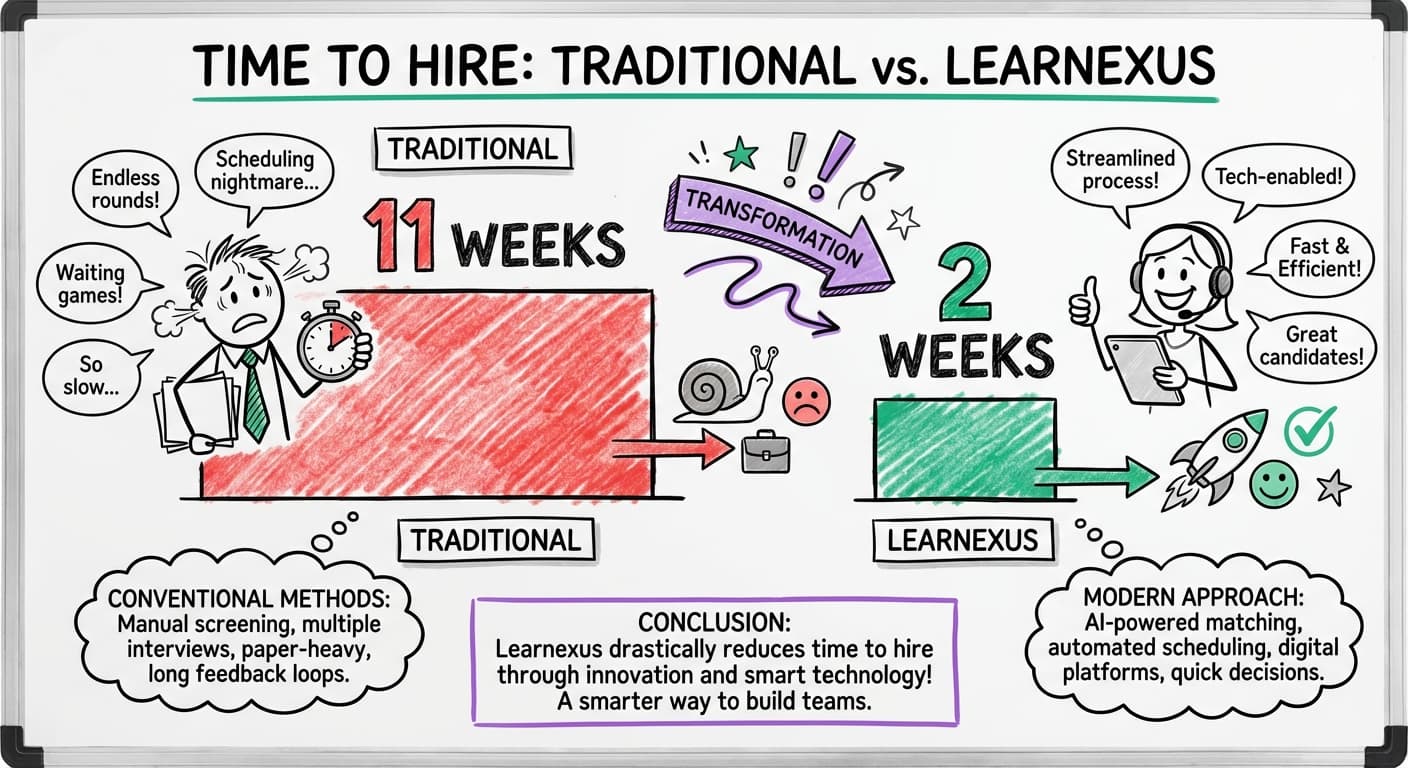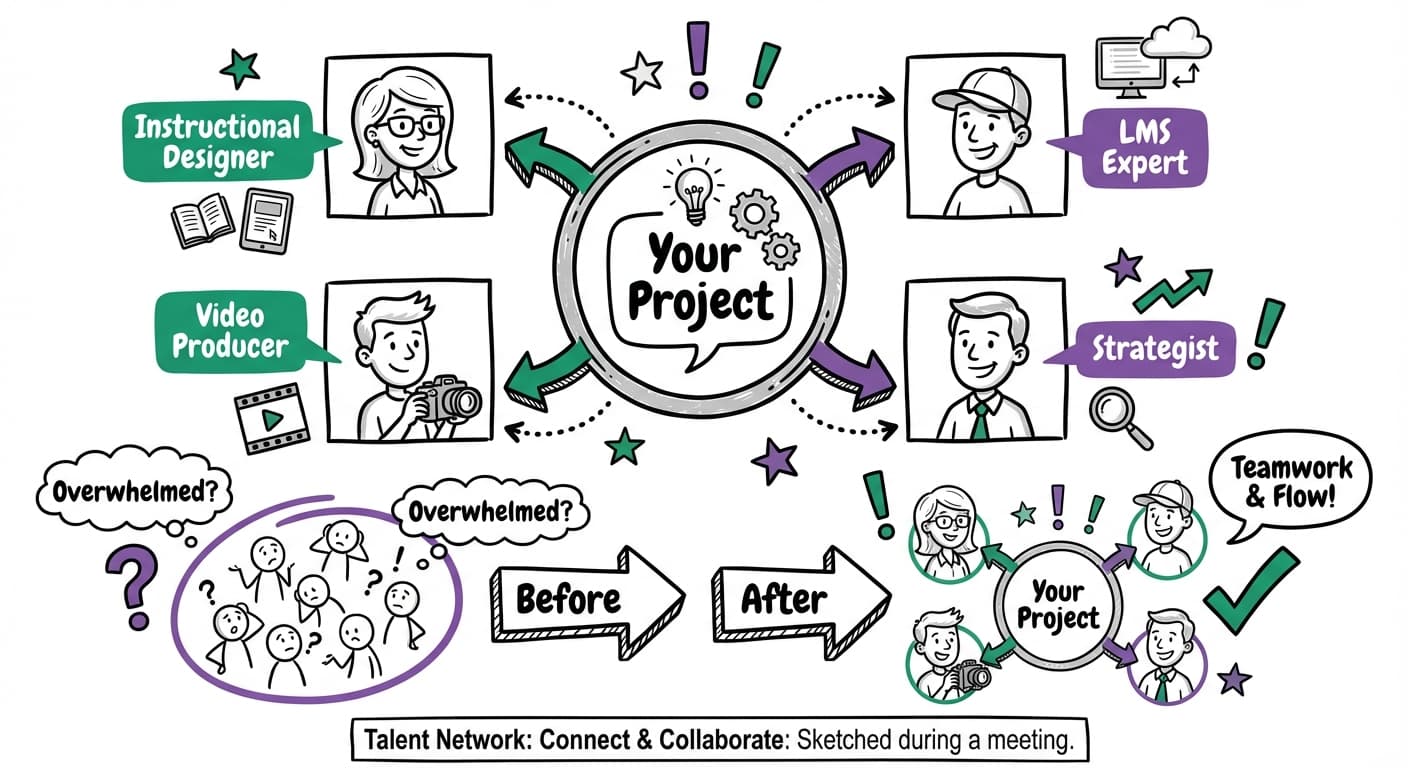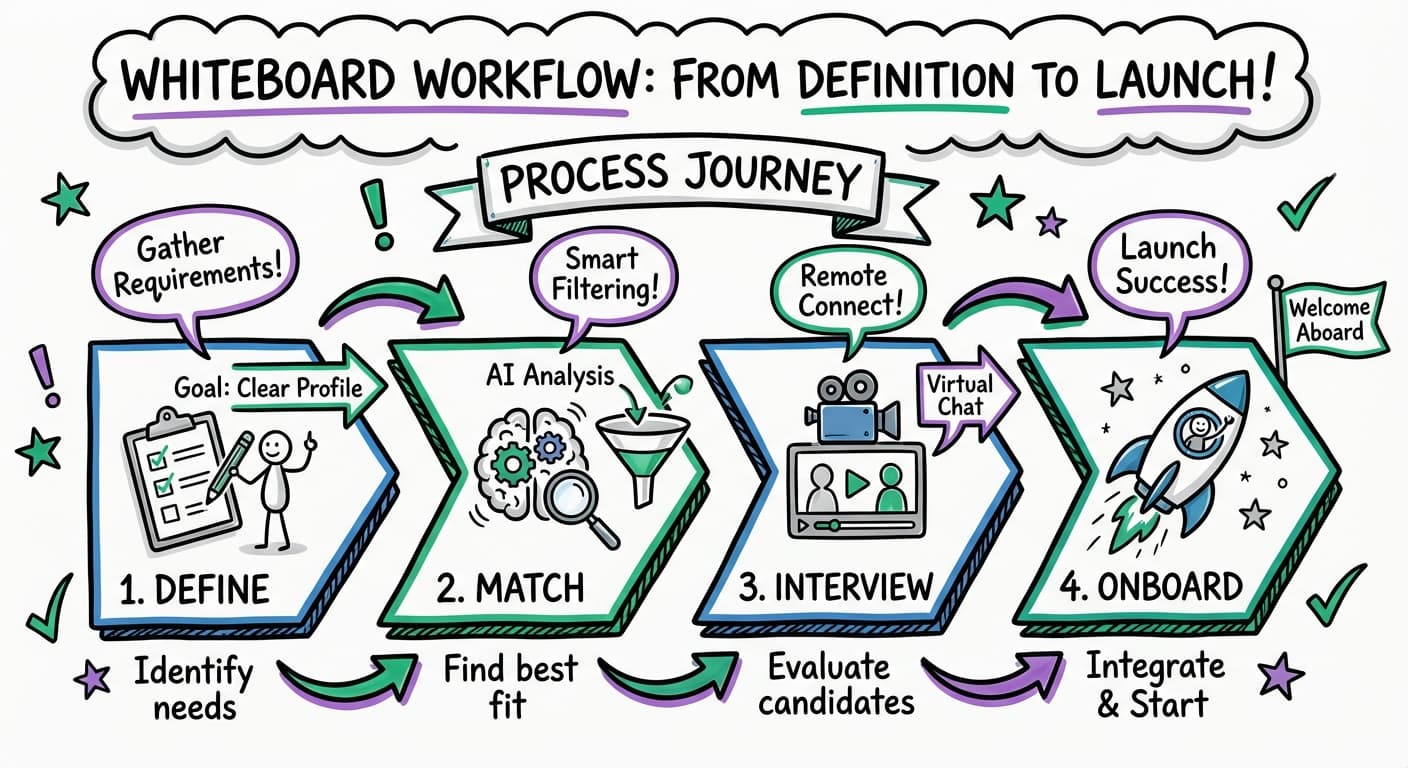Hire Expert L&D Talent. Skip the Wait.
Connect with pre-vetted instructional designers, training specialists, and learning consultants in days—not months. Reduce costs by 40% while accessing Fortune 500-caliber talent on demand.
Trusted by L&D teams at leading enterprises
The L&D Talent Challenge
The Skills Gap Crisis
Today's L&D needs expertise in digital platforms, data analytics, VR/AR, and AI-powered personalization. Traditional hiring can't keep up.
Time-to-Hire Nightmares
The average L&D position takes 68 days to fill. Critical training stalls, employee development suffers, and your team burns out.
Budget vs. Quality Dilemma
You need top-tier L&D talent but lack the budget for senior full-time hires. Result? Compromised quality or overextended budgets.

There's a better way. Skip the endless vendor searches. Get matched with pre-vetted L&D experts who are ready to deliver.
Built for L&D leaders who
demand results.
Whether you're scaling enterprise training or building your first program, we've got the right experts waiting.
L&D Directors
Enterprise & Fortune 500
- Need to scale training initiatives fast
- 68+ days to fill specialized roles
- Budget pressures vs. quality needs
Training Managers
Mid-Market Companies
- Internal team stretched thin
- Critical projects backing up
- Agencies charge 2-3x actual cost
HR Leaders
Growing Organizations
- Building L&D capability from scratch
- Need proven expertise, not guesswork
- Want measurable results quickly
CLOs & VPs
Learning Organizations
- Strategic initiatives stalled by talent gaps
- Need Fortune 500-caliber expertise
- Board demanding learning ROI metrics

Sound like you? Let's talk.
Your Path to L&D Success
From project posting to expert kickoff in 1-2 weeks—compared to 6-11 weeks with traditional hiring.
Define Your Challenge
Articulate your L&D needs: outcomes, timeline, budget, and required skills. We help scope it right.
Get Matched in 48 Hours
Our intelligent matching considers industry experience, technical proficiency, and engagement preferences.
Interview & Select
Review portfolios with measurable outcomes, watch video introductions, and assess cultural fit.
Seamless Onboarding
Start immediately with integrated collaboration tools, milestone tracking, and quality assurance.

Ready to find your next L&D expert?
Here's what you'll receive
within 48 hours
Real video proposals from vetted L&D consultants, tailored to your project needs.
No commitment • Free to post • 14-day guarantee
Curated L&D Masters.
Ready to design.
Tell us what you need. Get matched with vetted experts in 24hrs.
48hrs
Avg. Match Time
10yr+
Avg. Experience
The math is simple.
Total Savings
$14,000+
Your cost to post a job: FREE
From posting to production.
See the transformation timeline when you partner with Learnexus experts.
Quick Win
Post your project in 5 minutes
Compound
Review video proposals from 5+ vetted experts
Advantage
Your training program is in production
10x Result
World-class L&D capability at 40% less cost
Trusted by top learning teams.
"Working with Learnexus changed how AES worked with contractors and brought in much higher quality talent. I cannot thank you enough!"
Angela Britcher, M.A.
Instructional Designer, Adjunct Professor, & Content Creator
Hear from our clients.
Real L&D leaders sharing their experience working with Learnexus experts.
"The speed and quality of L&D consultants through Learnexus exceeded our expectations."
Learning & Development Leader
Enterprise Client
"Learnexus is a great place to find qualified candidates."
Global Director
Navis
"The client call us the 'A-Team', the client really like us."
Instructional Designer
Landon

Peter Enestrom
Founder & CEO
"I built Learnexus because enterprise L&D teams deserve better than agency runaround."
After years at Microsoft and building multiple companies, I saw the same pattern: L&D leaders struggling to find quality talent while agencies charged 2-3x markups. I knew there had to be a better way to connect great companies with great experts.
Today, teams at MongoDB, SAP, and ServiceNow use Learnexus to hire vetted L&D professionals in 48 hours—not weeks. No RFPs. No overhead. Just results.
Ready to find your L&D expert?
Join L&D teams at MongoDB, SAP, ServiceNow, and more.
Answers for L&D Leaders.
Have a specific requirement?
Speak to our matching teamStop guessing.
Start building.
Schedule a 15-minute scoping call with our Recruitment Team. We'll help you define your needs and shortlist 3 vetted experts by tomorrow.